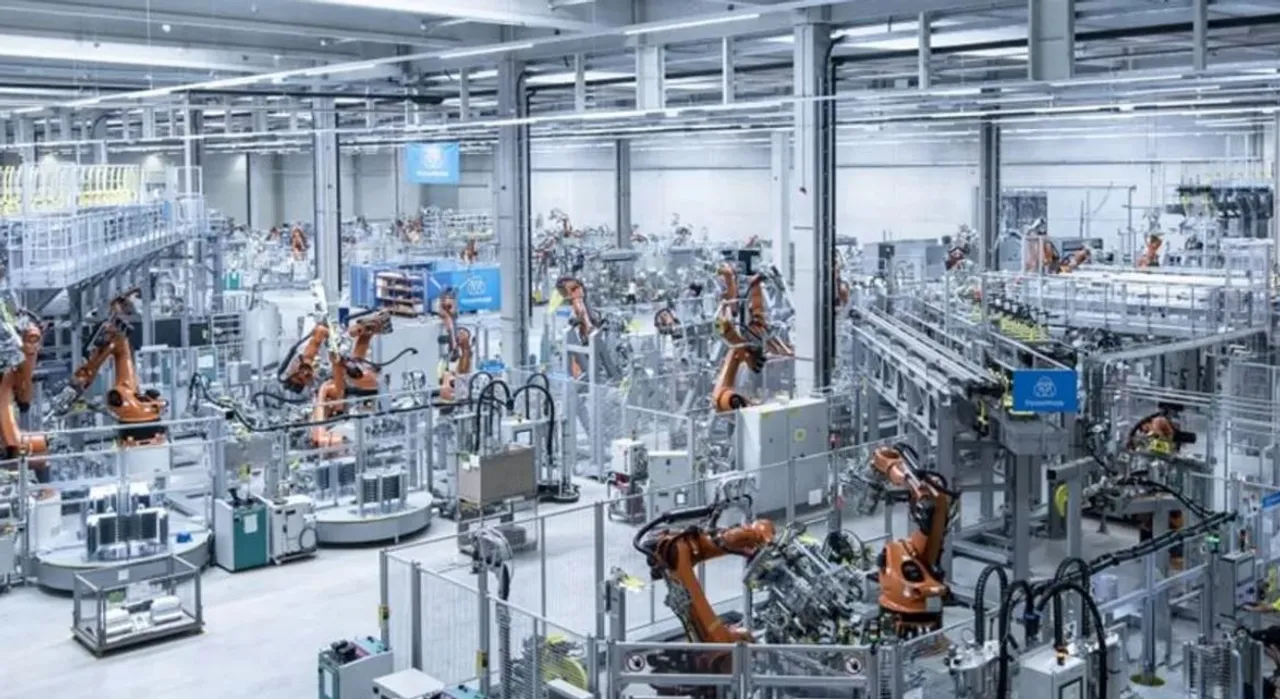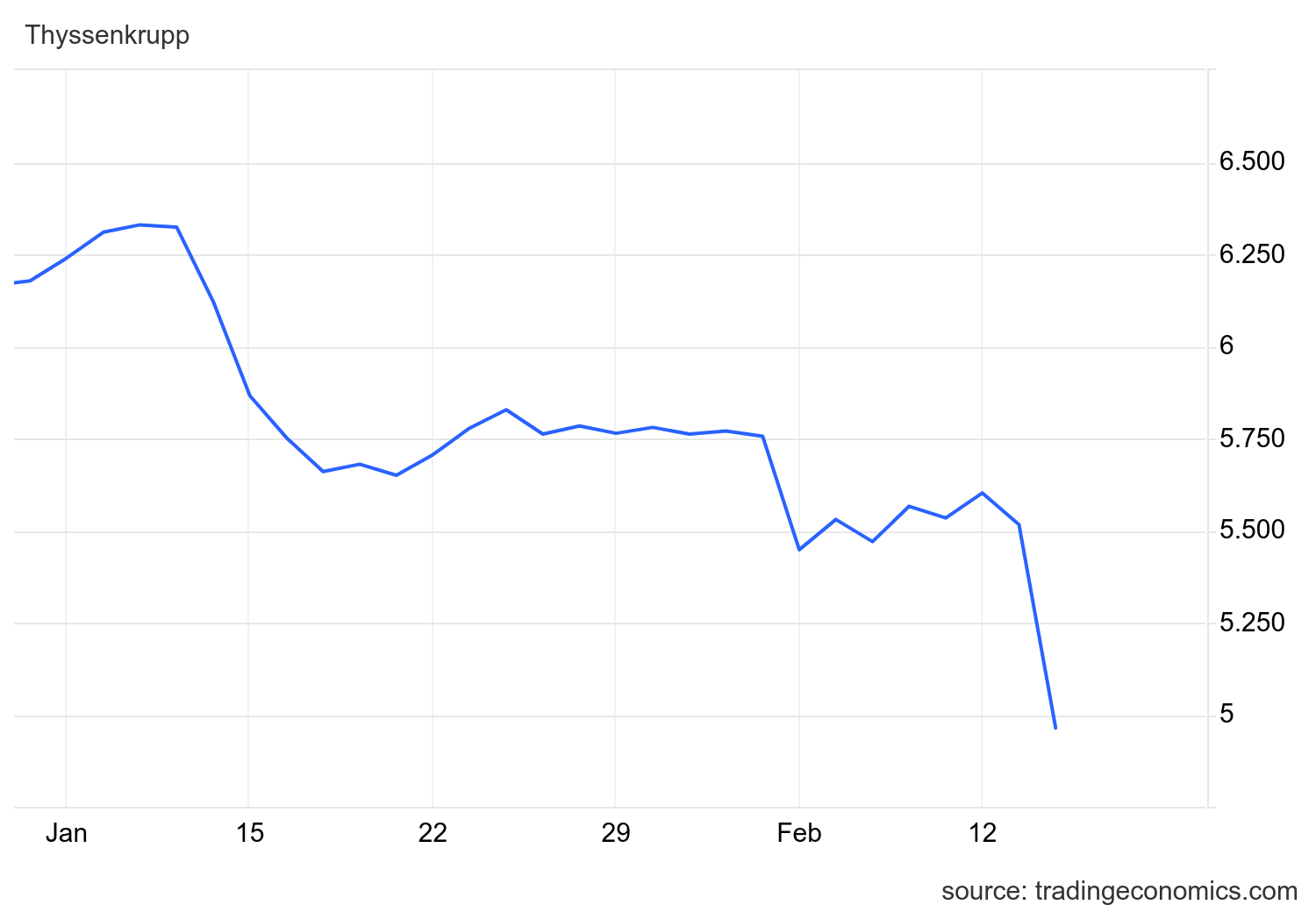International
ThyssenKrupp declares heavy losses and falls on stock market

In the last quarter, the Thyssen-Krupp industrial group registered heavy losses. This was mainly due to new value adjustments in the steel business due to rising interest rates and the resulting increase in the cost of capital, the company announced Wednesday in Essen.
“We continue to navigate a difficult market environment characterized by geopolitical and trade policy conflicts,” Chief Financial Officer Klaus Keysberg said in a conference call with reporters.
Thyssen-Krupp posted a net loss of 314 million euros in the first quarter of this fiscal year, after a profit of 75 million euros in the same period last year. Depreciation and amortization amounted to about 200 million euros.
Falling prices and lower demand in the steel business, particularly from automotive customers, caused earnings before interest and taxes (EBIT) adjusted for special effects to halve to 84 million euros.
Also evident are the first positive effects of the “Apex” performance program, launched by CEO Miguel Lopez, Keysberg explains. This is expected to contribute up to $2 billion to adjusted EBIT by fiscal year 2024/25 and mitigate “offsetting market effects.” Apex is a program to boost efficiency through cost optimization and increased corporate operating income.
Investors, however, were disappointed: on Wednesday morning, the stock was temporarily down more than 9 percent, around 5 euros.

The industrial group continues to hold purchase negotiations with potential buyer Daniel Kretinsky, Keysberg explained. Nothing has changed in the status of the negotiations; it is also not yet clear when the results will be available. The proposals under discussion were either to sell the steel business to the Czech investor or to create a 50/50 joint venture to be listed separately. Either solution would be a momentous change for the German company, which has been in the industry for 200 years and is an institution for Germany.
At the end of the year, Czech billionaire Kretinsky made it clear that the deal could be delayed for a few more months, several people involved told the Handelsblatt. However, the value of the steel division does not change as a result of the value adjustments, Keysberg explained.
Sales and incoming orders fall
The poor steel economy is also likely to put pressure on the talks. Weak demand combined with high and internationally uncompetitive electricity prices caused production in Germany to be at a historically low level last year. No improvement is expected for the time being. The Thyssen-Krupp crisis is a different representation of the German systemic crisis, the disaster caused by the combination of the breakdown of relations with Russia and
Turnover also declined due to lower demand and price levels—by 9 percent to nearly 8.2 billion euros, which is below market expectations. Order volume decreased by 13 percent.
As for the Marine Systems submarine division, the group sees potential in independence—possibly with European consolidation—and is examining options. Keysberg also confirmed that the federal government is currently considering intervention through the state-owned KfW.






